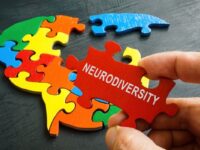Businesses are constantly searching for new strategies to stay ahead in today’s rapidly changing business environment. One promising approach is the movement to embrace neurodivergent employees.
Neurodiversity in employment refers to valuing a range of cognitive profiles, including, but not limited to, autism, ADHD, and dyslexia, to create inclusive workplaces and harness unique strengths for innovation and productivity.
New findings from the Australian HR Institute (AHRI) highlight discrepancies in how diversity, equity, and inclusion (DEI) are implemented across Australian workplaces. These findings reveal a disconnect between understanding, commitment, and actual steps taken. This emphasises the urgent need for better support for neurodivergent employees. It also poses challenges and opportunities for organisations striving to promote employee well-being while pursuing strategic growth.
The HR perspective
According to the State of Diversity, Equity, and Inclusion in Australian Workplaces report via the Australian HR Institute (AHRI), a significant gap exists between employer awareness, intent, and action regarding DEI. While an overwhelming 84 per cent of HR professionals recognise diversity, equity and inclusion (DEI) as critical to their organisation’s future success, only half (50 per cent) indicate that their leaders prioritise DEI.
Furthermore, nearly half (49 per cent) of HR professionals lament their organisations’ lack of focus on DEI initiatives. This disparity between intent and practice is exacerbated by the revelation of relatively low levels of transparency in collecting diversity data. Only a minority of companies have integrated diversity and inclusion priorities into their employee benefits strategy, with even fewer implementing specific policies to accommodate neurodiversity.
Challenges faced by neurodivergent employees
As noted via the AHRI, there is a deficiency in data regarding DEI policies. However, research from WTW’s Global Benefits Attitudes survey sheds light on this issue. Statistics indicate that a significant 70 per cent of neurodivergent employees struggle with mental health issues, which adversely affect their personal well-being and professional performance, according to WTW’s Global Benefits Attitudes survey.
Given that around 10 per cent of the population is neurodivergent, it’s highly probable that there’s an existing neurodivergent workforce within the organisation that may not be receiving adequate support. Therefore, it’s crucial to acknowledge and address the challenges neurodivergent employees face. Doing so is essential for their wellbeing and pivotal in enhancing productivity and nurturing organisational development.
Strategic benefits of support:
By inviting people like me and my organisation, Living on the Spectrum, to discuss neurodiversity in the workplace, companies can foster a supportive environment and balance employee well-being against sustainable business growth. This proactive approach acknowledges existing gaps and simultaneously offers advancement opportunities.
Moreover, embracing neurodiversity and implementing inclusive practices adheres to ethical principles and provides strategic benefits. Businesses can create inclusive environments by creating sensory-friendly spaces and promoting awareness and acceptance of neurodiversity, which enhances well-being and productivity. Additionally, prioritising the wellbeing of neurodivergent team members can lead to advantages such as reducing absenteeism, improving employee retention, and boosting overall employee wellbeing, thereby nurturing resilient workforces.
A strategic imperative for Australian businesses:
Supporting neurodivergent employees is crucial beyond morals; moreover, it’s a strategic necessity. By embracing neurodiversity, organisations can bridge DEI gaps, unlocking competitive edges. To achieve this, prioritising inclusivity and investing in employee well-being is essential for enhancing performance.










